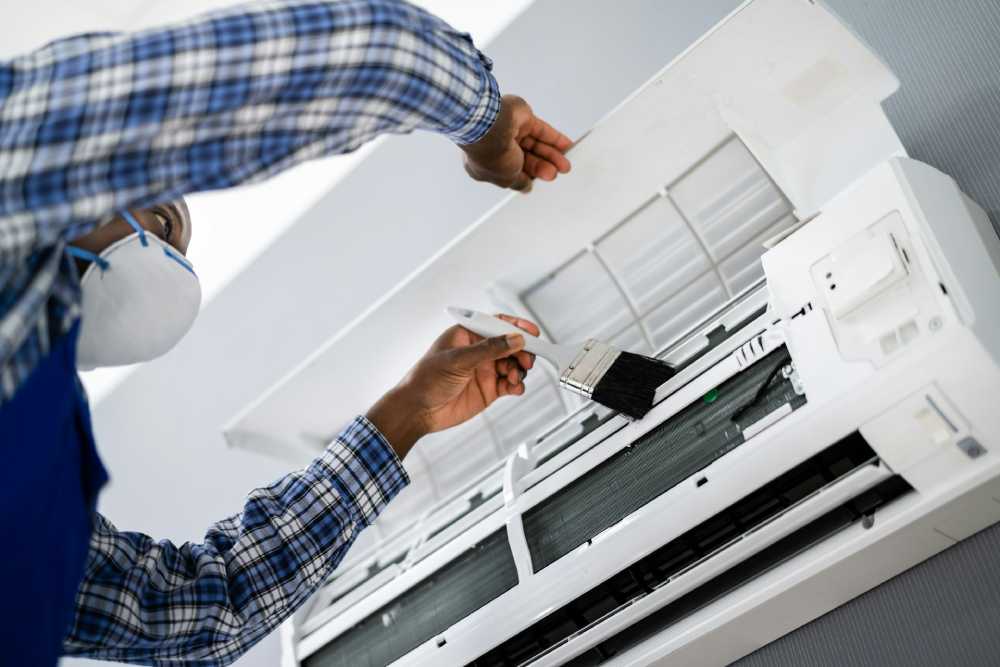How to Optimize Your Home’s Air Conditioning for Better Energy Efficiency
However, with increased usage comes higher energy bills. You can enjoy an incredible home without breaking the bank by optimizing your air conditioning system.
Maximizing your AC’s efficiency isn’t just about staying comfortable during heat waves; it’s also about ensuring you’re not wasting energy, which has financial and environmental implications. Here are some practical steps to help you improve your system’s performance and provide a more energy-efficient home all year round.
An efficiently running air conditioning system can save you hundreds of dollars annually and extend your unit’s lifespan by reducing unnecessary strain. You can keep your home comfortable and cost-effective this summer with a few intelligent adjustments and some essential maintenance.
Contents
Simple Tips for Improving Efficiency
There are several low-cost ways to boost your air conditioner’s efficiency:
Clean or Replace Air Filters
To enhance the efficiency of your AC, it is recommended to clean or replace air filters frequently. Clogged filters limit airflow, making your system work more than it should, ultimately decreasing its efficiency. Several experts advise replacing filters every one to three months, varying based on usage and indoor air quality; air conditioning repair services can take care of this for you by inspecting and changing your filters during routine maintenance visits, ensuring optimal performance without the hassle.
Seal Leaks
Fixing holes in your home can stop cold air from getting out and maintain a comfortable environment using less energy. Apply weatherstripping or caulk to close gaps around windows and doors. Additionally, insulating your attic and ductwork can significantly reduce energy loss.
Use Ceiling Fans
Ceiling fans can assist in air circulation, which in turn can decrease reliance on lower thermostat settings. Fans create a wind-chill effect, making rooms feel more relaxed. Remember to turn off fans when you leave the room, as they cool people, not spaces.
Close Blinds and Curtains
Keeping blinds and curtains closed during the day can block out heat from the sun, making it easier to maintain a cool indoor temperature. This simple step can prevent your air conditioner from overworking, especially during peak sunlight hours.
Importance of Regular Maintenance
Regular upkeep is essential to ensure optimal efficiency of your AC system. Scheduling annual check-ups can help identify potential issues before they become costly repairs. Cleaning coils, maintaining correct refrigerant levels, and ensuring system cleanliness can greatly impact performance.
Regular upkeep not only ensures smooth operation of your air conditioning system but also prolongs its lifespan, avoiding the inconvenience and cost of early replacements. As summers get hotter, the demand for air conditioning is rising.
During a professional maintenance check, HVAC technicians are able to conduct a thorough inspection and tune up of your system. This assists in identifying small problems before they develop into significant issues. In addition, technicians can provide expert advice on further improvements and optimizations specific to your home and system.
Eco-Friendly Alternatives and Upgrades
If you’re looking to make more substantial improvements, consider eco-friendly alternatives. HVAC systems that are energy-efficient are designed to consume less power while delivering equivalent cooling capacity. Air conditioners with a greater SEER rating can lead to considerable long-term energy savings.
Moreover, installing a programmable thermostat allows you to set different temperatures for different times of the day, saving energy when you’re not at home. For example, you can increase the temperature when the house is vacant and decrease it right before you come back. This ensures comfort without wasting energy.
The Role of Smart Technology
Innovative technology has revolutionized home cooling. Smart thermostats and air conditioning systems allow for remote control, guaranteeing that your home will be at the ideal temperature upon your arrival.
Smart thermostats also provide energy usage reports, helping you understand and reduce unnecessary energy consumption. They have the ability to understand your routine and likes, making changes to the temperature for maximum comfort and efficiency.
Integrating these devices with your home’s smart ecosystem allows voice control via assistants like Amazon Alexa or Google Home. Some systems even offer predictive maintenance alerts, notifying you when it’s time for a filter change or a professional check-up.
Choosing the Right Air Conditioning System
Selecting the right air conditioning system for your home is vital for efficiency. Consider your home’s size, cooling needs, and budget. Researching different types of systems can help you make an informed decision.
Various resources, such as the best air conditioning buying guide from Consumer Reports, are available to guide you. This guide provides detailed reviews and comparisons of different AC units, helping you choose the best one for your needs.
Consider energy efficiency ratings, installation costs, and long-term savings when choosing a system. It may also be beneficial to consult an HVAC professional who can assess your home’s needs and recommend the most efficient system.
Benefits of Professional Installation
Professional installation makes sure that your system is configured for optimal performance. Professionals can offer valuable advice and suggest the most effective strategies for your setup. Keep in mind, an improperly installed system can result in increased energy costs and frequent malfunctions. Proper installation is crucial for optimizing performance and longevity.
Professional installers can also correctly size your system, ensuring it’s neither too large nor too small for your home. An appropriately sized system will run more efficiently, dehumidifying the air effectively and maintaining a consistent temperature.
Conclusion
Improving your air conditioning system increases your comfort in hot summer months and decreases your energy usage. By adhering to these suggestions and taking into account environmentally friendly improvements, you can attain a more effective and long-lasting cooling system for your residence.
By putting these tactics into practice, you can cut down on energy expenses and lower your carbon footprint, resulting in a more sustainable and cozy home.

